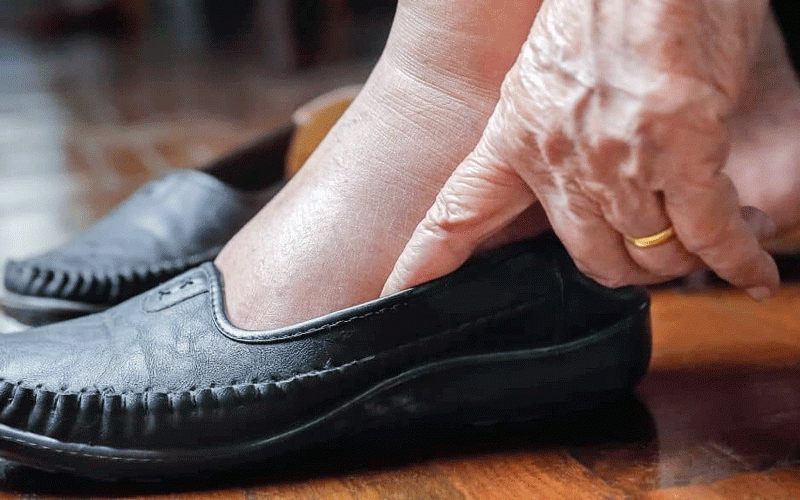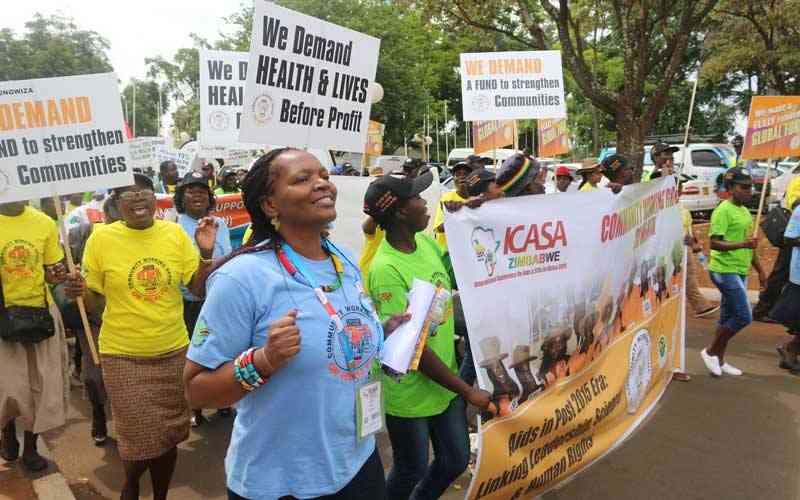
BY DR JOHANNES MARISA
Covid-19 continues to tear the world and it is undeniable that the virus has entered its third wave of attack with many European countries like Italy, France, Spain and Poland being hit heavily.
This is a signal that viral transmission is on high speed with daily cases now surpassing 600 000 and mortality circulating around 10 000 people daily. It seems we are far from over, hence the need to observe public health measures that were put in place.
Covid-19 infections may manifest with headache, cough, chest pains, high fever, abdominal pains, vomiting and tiredness. One has to take cognisance of the symptoms so that early action is taken.
Malaria, like Covid-19, shares some of the symptoms. This is a disease that causes mortality of close to one million people annually especially in Sub-Saharan Africa out of about 300 million people who get sick from the disease.
In 2019, the World Health Organisation (WHO) posted that there were 229 million cases of malaria with deaths of 409 000 people, 67% of which were children under the age of five years. It is a disease caused by a parasite that is spread to humans through the bites of infected mosquitoes. Billions of dollars are spent every year in trying to fight malaria.
Signs and symptoms
While we used to attribute malaria to history of travelling in high altitude areas like Harare, it is surprising that many cases that have been diagnosed lately have no history of travelling out of Harare.
- Chamisa under fire over US$120K donation
- Mavhunga puts DeMbare into Chibuku quarterfinals
- Pension funds bet on Cabora Bassa oilfields
- Councils defy govt fire tender directive
Keep Reading
This, therefore, calls for extra vigilance on everyone so that no one is caught unaware. The following symptoms and signs should be taken note of:
Headache
Hot body
Loss of appetite
General body weakness
Chills and rigors
Nausea/ vomiting
Abdominal pains
Muscle or joint pains.
Risk factors
There are some factors that put one at risk of malaria attack.
The following categories of people should be suspected of malarial attack if they exhibit any of the given symptoms.
Young children and infants
Older adults
Travellers coming from non-malarial areas
Pregnant women
Sickle-cell disease
Those who had a splenectomy
HIV and Aids
Complications
Let us be careful about malaria as it can complicate. The WHO estimates that about 94% of all malaria deaths occur in Africa, most commonly in children under the age of five years. Malaria deaths are usually related to one or more serious complications that include:
Cerebral malaria: Cerebral malaria can cause seizures and coma. Parasite-filled blood cells block small blood vessels to your brain with resultant swelling of your brain or brain damage.
Anaemia: Anaemia can arise from the breakdown of red cells. Patient can worsen in terms of weakness, dizziness or fatigability.
Hypoglycemia: Severe forms of malaria can cause low blood sugars as can quinine, a common drug that has been used for long in the fight against malaria.
Organ failure: Malaria can damage the kidneys or liver or cause spleen to rupture. Any of these conditions can be life-threatening. Renal failure with malaria is one of the most difficult complications.
Prevention
Prevention of malaria comes from destroying mosquito breeding sites, avoiding mosquito bites and getting preventive medicines (prophylaxis)
Mosquitoes are most active between dusk and dawn. To protect yourself from mosquito bites, you should:
Cover your skin: Wear pants and long-sleeved shirts
Apply mosquito repellent to skin
Apply repellent to clothing: Sprays containing permethrin are safe to apply to clothing
Sleep under a net: Bed nets, particularly those treated with insecticides, help prevent mosquito bites while you are sleeping.
Preventive medicine
Prophylactic drugs can be taken in order to avoid malaria.
Suppressive prophylaxis
Chloroquine, proguanil, mefloquine and doxycline are suppressive prophylactics that are only effective at killing the malaria parasite once it has entered the blood stage. They should therefore be continued for four weeks after coming from a malarious area.
Causal prophylaxis
The user can stop taking the drug seven days after leaving the area of risk. Malarone and primaquine are the only available prophylactics in current use.
Diagnosis
Clinical examination is important in diagnosis of malaria as fever, jaundice and pallor can be found in many cases.
Rapid Diagnostic Test: Can give results within 20 minutes of testing using blood. Get yourself tested.
Microscopy: Plasmodium can be detected under the lens of the microscope so the ringforms can be reported scanty, moderate or severe.
Be careful about both Covid-19 and malaria as we are facing the third wave of Covid-19. Your health is important. Seek early treatment
- Dr Johannes Marisa is a medical practitioner who can be accessed on [email protected]











